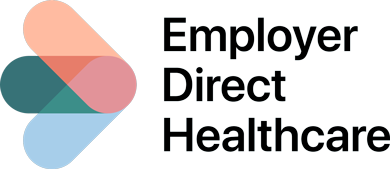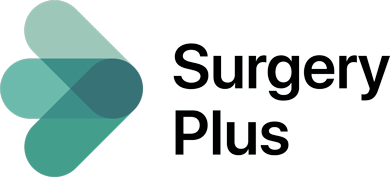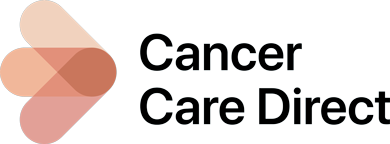As an oncology nurse navigator at Employer Direct Healthcare, no two days are ever the same. Nurse navigators serve as the single point of contact for members and their families, providing education and advocacy, expediting referrals for second opinions, steering members to the appropriate site of care, and connecting them with financial resources.
For Shannon Henry, who has been a nurse for over 20 years and came aboard the EDH team last year, the opportunity to care for and support members throughout their journeys couldn’t be more rewarding. “This role is different than anything I’ve done before and different than a lot of nurse navigator roles I’ve seen because we can help members in so many different ways,” she explains.
One member that Henry has been able to support with several needs is Matt,* a 30-something who was diagnosed with head and neck cancer. When he reached out, he had already been trying for nearly a month to get in contact with the nearest cancer center—which was about 3 or 4 hours away—to start treatment, but no one had returned his calls.
Understanding Matt’s frustrations and knowing the importance of getting him into treatment as soon as possible, Henry reached out to the center and was finally able to coordinate his care. She also set him up at the American Cancer Society Hope Lodge, a hotel that is free of charge for cancer patients. There, Matt was able to receive 6 weeks of daily radiation and chemotherapy treatments without having to travel back and forth from his home.
Towards the end of his treatment, Matt left to stay with his sister, and Shannon coordinated at-home IV services, educated his sister about how to administer the feeding tube, make him comfortable and avoid a hospital admission. “Between education, support, and finding resources, we were able to keep Matt in her home so that he had someone to watch over and take care of him,” Henry says.
Today, Matt is in remission, back to work, and in EDH’s survivorship program where he receives ongoing education about the National Comprehensive Cancer Network guidelines for follow-up care as well as support. “Matt and his sister are very grateful for the support they received and the peace of mind knowing they could get in touch with me whenever they needed to,” Henry says.
A Second Opinion, New Treatment Options Provide Hope
Emily Wentz, who has been a nurse navigator at EDH for two years, says the best part of her job is knowing that she has made an impact on someone’s life. “The ways that I’m able to care for and support members makes me feel that I make a difference every day,” she says.
One of those members is James,* a 76-year-old retiree who reached out to Wentz last year after being diagnosed with liver cancer—a result of taking a toxic medication years earlier. James is retired, but his wife’s employer offers Cancer Care Direct so he was able to access the benefit.
Although James needed a liver transplant, the hospital near his home would only do the transplant if the tumor was under 5 centimeters. Since his tumor was 6 centimeters, the only treatment they would offer him was immunotherapy. “When he was first diagnosed, he didn’t want to be told that there wasn’t much hope,” according to Wentz. “He wanted to do everything he could to survive and beat cancer and be there for his family.”
Through a second opinion program, Wentz connected James with an oncologist at the Mayo Clinic and made sure all of his travel expenses were covered. At the consult, the oncologist determined that in fact, he could start radiation therapy to shrink the tumor and then be placed on the liver transplant list.
Now, months later, radiation was successful, and James started the process to receive a liver transplant. “We’ve given him an opportunity to become curable, but more importantly, we’ve given him confidence and empowered him as a patient to be able to make his own healthcare decisions and have open discussions with his family,” Wentz says.
Navigating James to higher-quality care and a viable treatment option he previously didn’t have access to is something Wentz says is why work is so meaningful. “It’s a great feeling when you get to have somebody say to you, you’ve really made a difference and made this easier for me and I can’t thank you enough. But it’s something else when you get to actively participate in saving somebody’s life.”

Finding Convenient Care and Staying Adherent
Katie McCamey says she was inspired to become a nurse when she was a child watching her mom, a home health nurse, care for patients. Knowing that many of them didn’t have a lot of family nearby, her mom would collect donations and purchase food and gifts for them during the holidays to make sure they felt cared for. “She really helped them to stay independent for as long as they could, and I knew then that I wanted to make a difference in people’s lives just like her,” she recalls.
One EDH member who stands out for McCamey is Jane*, a woman who was diagnosed with chronic lymphocytic leukemia. Jane travels for work several times a year and for three months or more each time.
As a result of her cancer treatment and IgG deficiency, a problem in which the body doesn’t make enough Immunoglobulin G, Jane developed multiple infections.
When she called McCamey, she had already received one round of infusion therapy with a drug designed to boost her immune system. For the next treatment, however, she was going to be out of state in a rural area, and she wasn’t sure where to find an in-network infusion therapy center.
After conducting research, McCamey found a center that would accept the out-of-state provider order, but the facility wasn’t able to obtain authorization, and her local oncologist wasn’t willing to help. “She was frustrated by the lack of response and assistance and was ready to forgo treatment altogether,” she recalls.
McCamey suggested finding another local oncologist to order the infusion. McCamey scheduled the consult, sent all of Jane’s records, and assisted in following up on her authorization with her provider and infusion center facility. Soon after, Jane received the treatment without having to take time off from work and was able to adhere to her treatment plan.
Once her appointment was scheduled, Jane sent McCamey a note thanking her for all of her help and letting her know that she would share her great experience with her husband’s employer, as well.
Financial Support for a Single Mom With Breast Cancer
Claudia McClanahan, who spent most of her career as a bedside nurse, says the best part of her role as a nurse navigator is the connections she makes with members. “There’s a special bond that’s formed when you’re working so closely with a member and you go through the lowest of lows and the highest of highs with them,” she says.
One of those members is Leda*, a 40-something single mom of 2 young children. After going in for a routine mammogram, Leda was diagnosed with stage 2 HER2 positive breast cancer. “When she first reached out, she was in shock about the diagnosis because she had no family history of breast cancer and this was all really new for her,” McClanahan recalls.
Although Leda works full-time, she is a low-income individual, and she knew this new diagnosis would make finances even more challenging. McClanahan helped Leda get connected with a local food pantry and apply for national grants—one of which she received from the Susan G. Komen Foundation to use however she sees fit. McClanahan also helped to secure a free wig for Leda before she started treatment. “She was so excited—she thought she won the lottery,” McClanahan says.
Although Leda is fluent in English, it’s her second language so she also has health literacy barriers. McClanahan helped her to understand the side effects of treatment and how to take her medications.
Leda recently finished her last round of chemotherapy and surgery will be soon. “I’m in awe of her ability to overcome countless obstacles. I witnessed her strength and her resilience, and it’s a constant reminder to me about what’s important in life,” McClanahan says.
Making a Rare Pediatric Cancer Diagnosis Easier to Face
When Christine Balch heard about the nurse navigator role at EDH, she knew it would be the perfect opportunity to use her 30 years of experience as an oncology nurse to educate members and help them throughout their journeys. “Cancer Care Direct is a concept unlike anything I had ever heard of, and it sounded almost too good to be true,” she says.
In just a few short months that Balch has been with EDH, she has supported several members. Yet there’s one in particular who she’ll never forget: 15-year-old Gabby* who was diagnosed with liposarcoma, a rare type of cancer that develops in the fatty tissues of the body. Although liposarcoma can be metastatic, fortunately for Gabby, the cancer is localized.
When Gabby’s family originally reached out, they explained that since they live in a remote area, they were traveling more than two hours one way for her to receive daily radiation treatments which were slated for 5 weeks. With Gabby’s father working night shifts, and two other children at home, Gabby’s mom was forced to take an unpaid leave of absence at work which significantly impacted them financially.
Through a hospital foundation grant, however, Balch was able to coordinate a free hotel for the family for certain weeks so they wouldn’t have to make the long drive. As part of the employer’s plan design, the family also received mileage per diem, which also helped to offset some of their costs.
Gabby recently finished radiation and will have surgery to remove the tumor in a few weeks, and her prognosis is promising. “I’m a mom, and although I never had a child with cancer, I can understand and empathize with what this family has gone through,” according to Balch. “They’re a very strong, positive family and every time I talk with them, they can’t thank us enough for everything we’ve done for them. That in and of itself is absolutely why I do what I do.”
*names have been changed to protect members’ privacy



